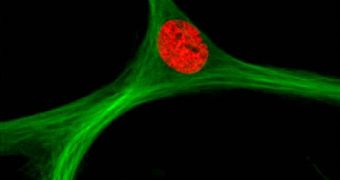The Australian Research Council awarded $21 million to the University of Melbourne, in order to set up Stem Cells Australia – SCA.
This funding for the SCA is part of the Australian Research Council’s Special Research Initiative in Stem Cell Science, and it this project will make Australia, one of the top world actors in stem cell research.
The “SCA will create a unique, critical mass of multidisciplinary research expertise required to deliver critical new breakthroughs in stem cell sciences,” Deputy Vice-Chancellor (Research) Professor Peter Rathjen said.
“It will provide insights into the fundamental mechanisms of stem cell science to inform our understanding of basic, developmental, pathological and regenerative processes.”
As for the Scientific leader of the SCA, the honor goes to Professor Martin Pera, who is now the Head of the Eli and Edythe Broad Center for Regenerative Medicine and Stem Cell Research at the University of Southern California, but who will return to Australia for the job.
Professor Rathjen stated that “Professor Pera is an internationally recognized ES cell researcher, having worked in the field of human stem pluripotent cell biology for 25 years.
“He left Australia for the US in 2006 but has been recruited back by the University of Melbourne expressly to lead SCA.
“His leadership and vision will provide a great boost to Australian stem cell science.”
SCA will make of Australia one of the world leaders in stem cell research, believes Professor Trevor Kilpatrick, Director of the Center for Neuroscience at the University of Melbourne.
He added that “in the long term, SCA will develop proprietary bioengineering technologies that translate into marketable solutions for industrial scale up of stem cell products with future applications to the healthcare sector.”
Stem Cells Australia will be a powerful collaboration between the University of Melbourne, Monash University, the University of New South Wales, the University of Queensland, the CSIRO, the Victor Chang Cardiac Research Institute, the Walter and Eliza Hall Institute of Medical Research and the Florey Neuroscience Institutes.

 14 DAY TRIAL //
14 DAY TRIAL //